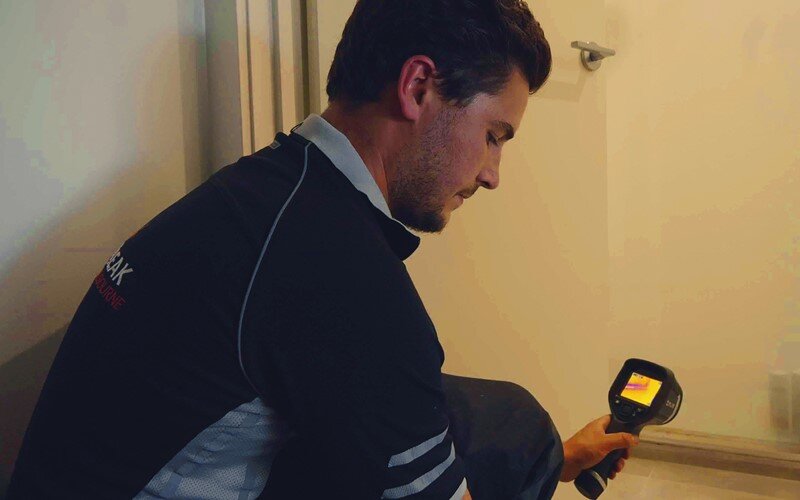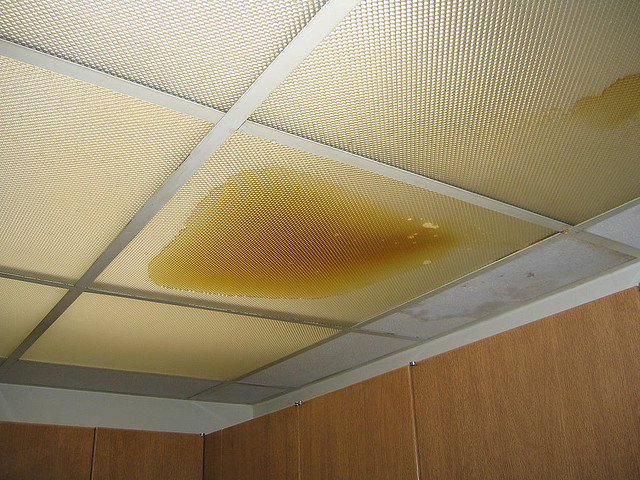How to Examine If Your Home Has a Concealed Leakage
How to Examine If Your Home Has a Concealed Leakage
Blog Article
On this page down the page you'll find a good deal of quality insight in relation to Leaking water lines.

Early discovery of dripping water lines can minimize a potential calamity. Some tiny water leaks might not be noticeable.
1. Check Out the Water Meter
Inspecting it is a surefire way that assists you uncover leaks. If it relocates, that suggests a fast-moving leakage. This implies you may have a sluggish leakage that might also be below ground.
2. Check Water Consumption
Analyze your water expenses and also track your water consumption. As the one paying it, you must notice if there are any kind of discrepancies. If you spot sudden changes, despite your usage coinciding, it implies that you have leakages in your plumbing system. Keep in mind, your water costs should fall under the exact same variety every month. A sudden spike in your bill suggests a fast-moving leak.
A stable rise every month, also with the exact same behaviors, shows you have a sluggish leakage that's likewise gradually intensifying. Call a plumber to completely examine your residential or commercial property, particularly if you really feel a cozy area on your floor with piping below.
3. Do a Food Coloring Examination
When it concerns water consumption, 30% comes from commodes. Examination to see if they are running correctly. Drop specks of food color in the container and wait 10 minutes. If the color somehow infiltrates your dish throughout that time without flushing, there's a leakage between the container and bowl.
4. Asses Exterior Lines
Do not fail to remember to examine your exterior water lines too. Ought to water leak out of the connection, you have a loosened rubber gasket. One small leak can waste loads of water as well as surge your water expense.
5. Evaluate the situation as well as check
House owners should make it a practice to examine under the sink counters and also inside cupboards for any kind of bad odor or mold development. These 2 red flags indicate a leak so prompt attention is called for. Doing routine examinations, also bi-annually, can conserve you from a significant issue.
More significantly, if you know your home is already old, maintain a watchful eye on your heating units, pipes, pipelines and so on. Look for discolorations and also compromising as the majority of devices and also pipelines have a life expectancy. They will certainly also normally weaken because of damage. If you believe leaking water lines in your plumbing system, don't wait on it to escalate. Call a professional plumber right now so you do not end up with a horrible mess in your home.
Early detection of leaking water lines can minimize a prospective catastrophe. Some small water leakages might not be visible. Inspecting it is a proven means that helps you discover leaks. One tiny leak can throw away loads of water and spike your water bill.
If you believe dripping water lines in your plumbing system, don't wait for it to escalate.
5 Signs that Your Home Has a Hidden Leak
Your water bill is unusually high without explanation
Generally, your water bill tends to stay consistent throughout the year as long as the same number of people live in your household year round. The bill might be higher during certain times of the year, such as summer, when your lawn may require more watering than it does in cooler months. However, if you notice a rise in your water bill that you can’t explain, it’s an indicator that there’s a hidden leak somewhere in your home.
You hear running water
One of the biggest signs that you have a water leak is the sound of rushing water when no plumbing fixtures are on and when no water-using appliances are running. If you hear running water in your walls when no water is being used anywhere in your home, locate your home’s main water shut-off valve, shut off your water supply, and contact a plumber at once.
Your home smells musty
Hidden leaks often occur in dark spaces, such as behind walls or under carpeting. Incidentally, darkness and moisture can create an ideal breeding environment for mold or mildew. If you start to smell mildew or the scent of rotting wood or stagnant water around your home, it’s a fair bet that a leak is the culprit.
You find wet spots around your home
The wet spots usually show up as moist areas in your carpeting. If your home has a basement level, puddles on the floor could indicate a slab leak. Outside, unexplainable puddles or lush, green patches in your yard often mean that there’s a leak in your sewer line or main water line.
You have stains, bubbles, or condensation on your walls/ceiling
Stains or condensation on your walls or ceiling are both major signs of a hidden leak. Also, drywall (AKA. sheetrock) is very absorbent, and as it takes on more water from a leak behind a wall, it will start to bubble, swell, or warp. If you see this happening in your home, don’t wait to contact a plumber before the water damage spreads.
https://www.ezflowplumbingaz.com/blog/2019/june/5-signs-that-your-home-has-a-hidden-leak/

As a serious reader about Hacks to detect leaks, I think sharing that excerpt was valuable. Liked our write up? Please share it. Help other people check it out. I appreciate reading our article about Top leak detection hacks.
Report this page